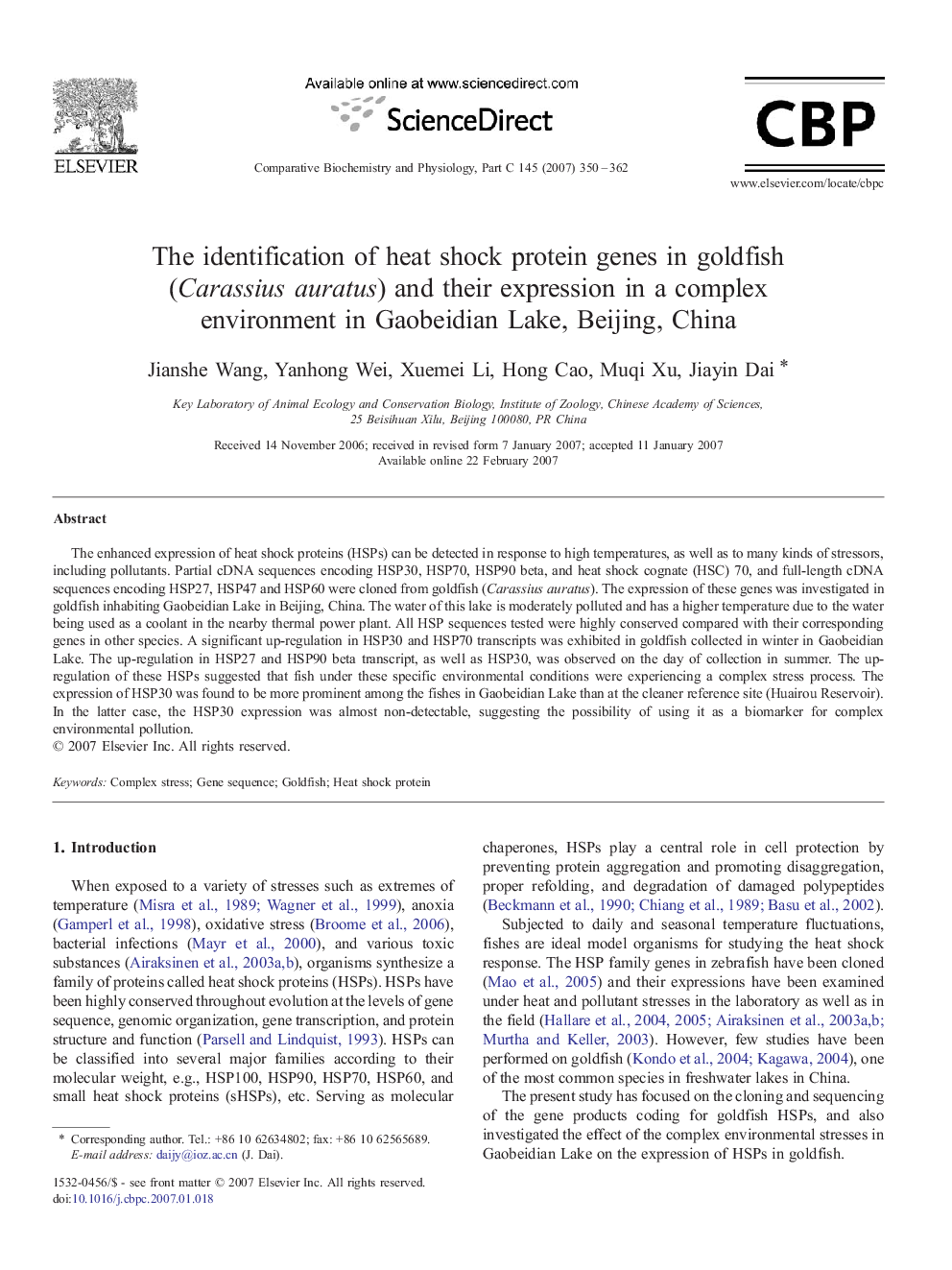| Article ID | Journal | Published Year | Pages | File Type |
|---|---|---|---|---|
| 1978440 | Comparative Biochemistry and Physiology Part C: Toxicology & Pharmacology | 2007 | 13 Pages |
Abstract
The enhanced expression of heat shock proteins (HSPs) can be detected in response to high temperatures, as well as to many kinds of stressors, including pollutants. Partial cDNA sequences encoding HSP30, HSP70, HSP90 beta, and heat shock cognate (HSC) 70, and full-length cDNA sequences encoding HSP27, HSP47 and HSP60 were cloned from goldfish (Carassius auratus). The expression of these genes was investigated in goldfish inhabiting Gaobeidian Lake in Beijing, China. The water of this lake is moderately polluted and has a higher temperature due to the water being used as a coolant in the nearby thermal power plant. All HSP sequences tested were highly conserved compared with their corresponding genes in other species. A significant up-regulation in HSP30 and HSP70 transcripts was exhibited in goldfish collected in winter in Gaobeidian Lake. The up-regulation in HSP27 and HSP90 beta transcript, as well as HSP30, was observed on the day of collection in summer. The up-regulation of these HSPs suggested that fish under these specific environmental conditions were experiencing a complex stress process. The expression of HSP30 was found to be more prominent among the fishes in Gaobeidian Lake than at the cleaner reference site (Huairou Reservoir). In the latter case, the HSP30 expression was almost non-detectable, suggesting the possibility of using it as a biomarker for complex environmental pollution.
Related Topics
Life Sciences
Biochemistry, Genetics and Molecular Biology
Biochemistry
Authors
Jianshe Wang, Yanhong Wei, Xuemei Li, Hong Cao, Muqi Xu, Jiayin Dai,
